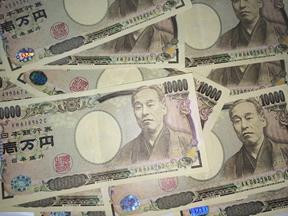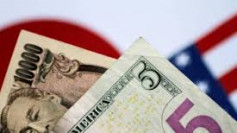The Japanese yen experienced a significant rally that market analysts and traders widely attributed to suspected intervention by Japanese authorities. This development occurred during a period of low market activity, just after the U.S. Federal Reserve concluded its policy meeting, where Fed Chair Jerome Powell hinted at delayed interest rate cuts due to persistently high inflation.
The dollar, which had been trading higher, softened across the board, closing down 0.9% against the yen at 153.09. This move is part of a broader pattern observed this week, including another significant fluctuation on Monday, which also suggested intervention during off-peak hours to maximize impact on the market.
Brad Bechtel, global head of FX at Jefferies in New York, described the timing of the intervention as "pragmatic," noting that "volumes were light, liquidity was thin, and it's easier to make an impact at that time." This strategy seems to have been effective, with the Bank of Japan's data indicating substantial expenditures to support the yen, with estimates ranging from 3.66 trillion yen ($23.59 billion) on Wednesday to 5.5 trillion yen ($35.06 billion) earlier in the week.
Despite these efforts, the long-term outlook for the yen remains bearish due to the broader dynamics of the U.S. economy and the cautious pace of interest rate increases by the Bank of Japan. The dollar has gained more than 10% against the yen this year, propelled by shifting expectations around the timing of the Fed's rate cuts, contrasted with the BOJ's tentative approach since its rate hike in March - the first since 2007.
Looking forward, market focus is now turning to the U.S. jobs report for April, expected to be released on Friday. Analysts predict the data will show that employers added 243,000 jobs during the month. Marc Chandler, chief market strategist at Bannockburn Global Forex in New York, emphasized the importance of this report, stating, "A lot hinges on tomorrow's jobs report." A weaker than expected jobs number could alleviate some pressure on the yen, potentially lowering Treasury yields and the dollar. Conversely, a strong report might bolster the dollar and increase the likelihood of further Japanese intervention.
Amid these developments, Japan's Vice Finance Minister for International Affairs, Masato Kanda, who is responsible for overseeing the nation's currency policy, declined to comment on the interventions. However, the lack of official confirmation has not dampened speculation about the government's role in these market movements.






